- Home
- JoAnn Ross
Sunset Point: A Shelter Bay Novel Page 12
Sunset Point: A Shelter Bay Novel Read online
Page 12
Her ruby lips were smiling seductively at the painter, but her thickly lashed eyes were shadowed in a way that was all too familar. “But sad.”
“I suppose that was to be expected. Despite her wealth and privilege, she definitely had her share of unhappiness. One man she loved but couldn’t marry drowned, then she suffered a failed marriage to a horrible man she hated, then, if all that wasn’t bad enough, her lover died young.”
“Wait. The man she loved drowned? Are you saying Isabella was in love with the captain?”
Tess folded her arms, tilted her head, and shot him a challenging look. “Are you saying he didn’t tell you?”
“No. He didn’t. But since you’ve already stated you don’t believe in him, you’re being facetious.”
“Which is as good a word as any for today,” Tess returned. “Isabella had a tragic life thanks to Captain Angus MacGrath.”
“Because he fathered her child?”
“It was more than that. Your supposed ghost, who also happens to be my great-great-grandfather, has been the reason that my love life has been a disaster since I was old enough to discover the difference between boys and girls.”
Okay. Having come to the surprising conclusion that for some reason, this sane, intelligent woman had a genuine grudge against the captain, Nate took his time phrasing a response. “Would you care to elaborate?”
“Not really. Forget I said anything.”
Tess had not intended to share the intimate admission. She’d only told one other person about the captain’s curse. And even then she’d said it jokingly, giving Alexis the impression that the story was merely a bit of fanciful folklore. To have blurted out her secret to someone who actually claimed to know the captain made her want to bite her tongue.
“You should have warned me that your wild imagination is contagious.”
Curiosity had replaced desire. “You can’t tell me something like that, then tell me to forget it. So what did the captain ever do to you?”
“You woudn’t believe me if I told you.”
“I’ve got a ghost living in my house and while I may even tell myself that my stories are fiction, if I didn’t believe them, just a bit, I’d still be on book one. The line between fact and fiction is thin. And often blurry. So, if I swear not to use it in a story, why don’t you just tell me? Otherwise I’m going to keep hounding both you and the captain until one of you caves in.”
“Has anyone ever told you that you can be annoyingly stubborn?”
“Not that you’d know anything about that,” he countered easily. “And for the record, counselor, I prefer thinking of it as tenacious.”
“Okay.” She folded her arms. “The short-story version is that the captain and Isabella fell in love. And were intimate.”
“Intimate as in having sex, given that he appears to be your ancestor.”
“Not appears. The unhappy fact is that the man is my ancestor. They had sex that resulted in a child. My great-grandmother.”
“That happens.” He shrugged. “So why didn’t they get married?”
“In the first place, because he’d come to America from Scotland. Which made him an immigrant.”
“Excuse me, but I don’t remember reading in any history books that Italians were native to the Americas.”
“Granted. But the Lombardis were admittedly snobs. Greeks and Estruscans had started making wine in what’s now Italy before the Romans took it up in the second century B.C. Julius Caesar and Leonardo da Vinci both drank Lombardi wine.”
“Or so the story goes,” he said.
“Granted, Caesar is undoubtedly a myth, since the Lombards invaded and gave the region its name in the late sixth century,” she allowed. “But da Vinci is a possibility. At any rate, origins were important to the family. Even to a black sheep like Basilio Lombardi, who’d reportedly been sent to America after supposedly getting a housemaid pregnant.”
“All the more reason he’d identify with the captain,” Nate argued.
“You’d think so, wouldn’t you? But he’d used his illustrious family history to gain publicity for the winery. During the late 1800s, while America might not have wanted royalty, that doesn’t mean that they didn’t think of them much the same way many people think about the British royalty today. Or celebrities. Basilio, who was descended from a duke, was one of those who believed his own press.
“He was also a hard man, as the story goes, and as far as he was concerned, any man who came from Scotland was descended from the Celts, who painted themselves blue and also invaded the region in the sixth century.”
“And it’s said we Irish know how to hold a grudge,” Nate said. “Get my great-grandmother Maeve going and she can rail about Cromwell for hours.”
“No disrespect given to your great-grandmother, but she’s a piker when it comes to what’s said about Basilio. At any rate, Isabella was married off to a more respectable Italian, Enzo Farraldo. He owned a Portland boarding house and restaurant in what was, at the time, Little Italy.”
“Did Farraldo know she was pregnant?”
“He did. But at the time, seventy-five percent of Italian immigrants in Portland were males, and fifty-five percent of those were single, so it was comparatively easy, given the hefty dowry Basilio was offering, to find Isabella a husband.”
“It didn’t hurt that she was a beauty,” Nate said. “I’m guessing she had no say in the matter.”
“None at all. After she died, my grandmother found her diary. In it she wrote that if she hadn’t been carrying a child, she would have killed herself rather than marry Enzo, who apparently never let her forget that she hadn’t come to their wedding bed a virgin.”
“I’m sorry. For her,” Nate said.
“According to the diary, the captain returned from sea and found she’d married. He showed up at her house, they had an argument, and, afraid of what he’d do if she told him about the child, she claimed the little girl was Enzo’s. Then she lied again and said she’d never loved him. Because she never could have given her heart to, or married, a man so beneath her class.”
“Ouch.” Nate rubbed the heel of his hand on his chest, above his heart. “That had to hurt. No wonder the guy’s always in such a rotten mood.”
“The captain wasn’t perfect, either,” Tess felt the need to point out. “He lost his temper and cursed Isabella, telling her that no Lombardi woman would ever find happiness in love.”
“So, are you saying that although you refuse to believe in ghosts, you do buy the concept of curses?”
“Now who’s being facetious?”
“Guilty as charged, counselor. Carry on. You have me intrigued by this tale of cursed Lombardi females.”
“When my great-grandmother Lucia was five years old, Enzo left his wife and daughter for a soprano from New York who’d arrived in Portland for a three-day series of concerts at the Marquam Grand Opera House. By then he’d given up running the boarding house and restaurant and was mostly living off Lombardi winery funds. He met the soprano by calling on her in her dressing room with a bottle of the vineyard’s finest Pinot Blanc.
“Apparently it lived up to the awards it won at the St. Louis World’s Fair, because when the soprano boarded the train to return to New York, she took two cases of the wine and Enzo with her.”
“So, that was good news for Isabella. Because the guy who’d treated her so badly was now living all the way across the country.”
“It wasn’t the same for women back then as it is now. With no income other than what she received from the winery, she was forced to return home to her father, who, while not as brutal as Enzo had been, after accusing her of running her husband off by being a failure as a wife, never spoke another word to her or her daughter.”
“You weren’t kidding when you said he was a hard man.”
“If the diary entries are any indication, he was horrid. By then the captain had drowned, not that I could see her tracking him down with a daughter in tow if he had been
alive. Since her self-esteem must have been in tatters.
“Moving forward a few years, a young artist, ten years younger than Isabella, traveled up from California to paint the scenery. He was painting in the vineyard when he spotted Isabella and Lucia having an early-summer picnic on the lawn. I’m not sure if it was love or lust at first sight, but whatever, their affair lasted six months.”
“During which time he painted that portrait.”
“He did. Unfortunately the Russian flu pandemic arrived with the winter rains. And he died.”
“Jesus.” Nate rubbed the back of his neck. “Okay, she admittedly had lousy luck with men. But you can’t be blaming the curse?”
“I know it sounds illogical.”
“Unlikely. Though not entirely illogical to a guy who lives with a ghost and got his start in publishing by writing about camel spiders.”
She looked at him curiously. “What’s a camel spider?” Then held up her hand. “Never mind. I don’t think I want to know.”
“It’s probably just as well,” he admitted. “Although it got me my first book contract, it’s a pretty gross tale… Getting back to the curse, Isabella wouldn’t be the first woman to have bad luck in the romance department.”
“No. But don’t forget Lucia’s disastrous affair with Jeremy Wainwright.”
“The guy was married. That’s never the best start for a relationship. And if you’re going to bring up her daughter Rosa’s ill-fated romantic dalliances next, it happens that we’ve met.”
“You did not meet my grandmother.”
“Hand to God.” He lifted his right hand. “But that’s a story for another night. At any rate, with all Rosa’s various lovers and running around the country taking on her social causes, your mother didn’t exactly grow up with a Leave it to Beaver childhood. Nor, from what I can tell, did she have any role models in the family to share relationship skills.”
Tess gave him a cool look. “Having read your strong female characters, I never would have taken you for a misogynist.”
“I’m not.” His voice was very controlled. Very quiet. “I’m simply frustrated at you comparing yourself to every damn woman in the Lombardi family. Refusing to give me a chance because of any foolish mistakes they made because of some improbable curse.”
She tossed her chin up. “How do you explain my mother’s three marriages?”
“Your mother, from what little I’ve read of her in the columns, appears to be a self-centered socialite. Her wine money, along with her marriage to the duke or whatever he is—”
“Technically, he’s an earl.”
“It’d be cooler if he were the Duke of Earl,” he said, momentarly lightening the mood. “But my point is that her money and jet-setting social position allow her to indulge her every impulse. If she had half the sense of her daughter, she’d have stayed married to husband number one.”
“I can’t argue that last part,” Tess admitted. “But they would have been miserable together. She was a lot different before the…”
She realized she was about to reveal something so personal she hadn’t even really addressed it with that shrink her parents had sent her to, when her cell rang. Which had her immediately tensing.
“Let me answer it,” Nate said. “So the guy knows you’re not alone.”
“Thanks, but the calls are all being monitored and traced.” Unfortunately, that hadn’t proven a help in catching the bad guy yet. “And it’s just Jake, an investigator I work with.”
“Where are you?” Jake asked without bothering with preliminaries.
“At home.”
“Alone?”
She glanced over at Nate. “No.”
“I heard about your bomb thing tonight. You got a cop with you?”
“No,” Nate said, loud enough that Jake could hear. “A Marine.”
“Semper fi. Small world. Tess’s dad and I were both in the Corps, too.”
“Why are you calling, Jake?” Tess asked, cutting the conversation off before the two men got into trading war stories.
“It’s Quinn. He’s in the hospital.”
“What?” She glanced toward the door. “But he was just here a while ago.”
“Yeah. I know. He was the one who told me about the bobblehead that wasn’t a bomb. He stopped for some joe on the way home and got hit by a car. He’s at OHSU. The one on Marquam Hill.”
“Oh, no! How badly is he injured?”
“I haven’t seen him yet. He was conscious when he arrived because he had the ER nurse call your dad. I’m guessing to tell him everything was okay at your place, but Mike’s not picking up his phone.”
“That’s not like Dad.”
“No kidding. And if he’d been home, he would’ve had his police scanner on and heard the call go out. So, anyway, like I was saying, Quinn was conscious when he arrived at the hospital and had the nurse call me so I could check on you. Just in case.”
“I’m fine. And I’ll be there right away.”
“Okay. So long as you bring the Marine with you.”
“I’m not letting her out of my sight,” Nate said, earning a sharp look from Tess.
“Okay. He’s up in radiology having tests. I’m going to stay here in the ER waiting room. If he gets moved somewhere else, I’ll call.”
“Thanks.”
She ended the call, then grabbed her coat from the hall rack. “Because I’m so worried, I’m not going to get in a discussion about you treating me like some helpless female who needs protection,” she said.
“I’ve experienced firsthand proof that you’re a strong woman capable of taking care of yourself,” he reminded her as they left the townhouse. Because her hands were shaking so badly, he took the key and locked the dead bolt. “But you’re also a prosecutor who’s been receiving possible death threats. And one of the cops who was assigned with protecting you just landed in the ER. I’d say that Jake guy, whoever he is, has the right idea.”
“Jake’s not only an investigator for the D.A.’s office,” she said as he pulled away from her house. It was just as well he was driving, because the way her mind was racing, focused so strongly on Donovan, she wasn’t certain she’d even notice any traffic lights along the way. “He’s former Yamhill County sheriff. And my dad’s best friend.”
The light from the dashboard allowed Tess to see Nate’s face as he registered the fact that Jake would have been involved in her kidnapping case and was grateful when he failed to comment on it.
“The fact that he was coherent enough to think to have the nurse call your dad and this Jake guy is a good sign,” he said. “When I got my TBI, I had mush for brains for a month.”
And didn’t that chill Tess’s blood? “But you obviously recovered,” she said. “You couldn’t write if you had continuing problems.”
“I was one of the lucky ones,” he allowed. “Though I still have gaps of that day the doctors say will probably never fill in. But strangely, thoughts flow more easily when I write, although there are times when I struggle more with finding the right word than I used to. But then again, maybe I’m just getting older. Which sucks.”
“Better older than the alternative,” Tess said.
“Ain’t that the truth,” he agreed. “I’ve got a question about the calls. How come, if they’re tracing the calls, he’s still out there?”
“Because, as I’ve learned, cell phone tracing doesn’t work like in the movies or on TV. Or even in courtrooms, where it’s often treated like DNA evidence.”
“Yeah. If it pings off a tower, you know where a phone is.”
“In a perfect world. But in reality, the technique is imprecise since the switching tower decides which of half a dozen towers in your area you connect with. Say everyone at a Trailblazers game decides to pull out their cell phone and make a call at the same time for some reason. It’s likely that the closest tower would be overloaded, so calls would be sent to other ones farther away.
“If your phone’s signal is picked
up by a tower ten miles away, you’re looking at a circle with a radius of ten miles. Which has an area of three hundred and fourteen square miles. Most towers have three directional antennae, each which covers one third of the circle. If you include that factor, you’re working with an area of one hundred point sixty-seven square miles.”
“That’s a big area,” Nate said. “And how the hell can you do that math in your head that fast?”
“I can’t. I lost a case early in my career to a defense attorney who did the math, which has stuck in my head ever since, because it made it impossible to prove, without a doubt, that the guy I knew was guilty was anywhere near the scene of the crime.”
“You’ve just taken a lot of the fun out of watching crime dramas,” he said as he turned onto the street leading to the hospital, following the signs through the maze of buildings.
“A lot of smart phones have GPS on them, which can pinpoint where you are. But, needless to say, my caller isn’t using one of those.”
When he pulled up in front of the ER, to save time, rather than park in the garage, Nate opted for valet parking. Not wanting to waste time herself, Tess jumped out of the car before he could come around and open the door.
The kid parking cars did an actual double take when Nate gave him the key to the Mustang GT muscle car. “Wow. This is some dope ride.”
“It is, indeed. And you’ll take good care of it, right?” Nate held out a bill.
“I’ll treat it like my own,” the valet promised as he pocketed the twenty.
They’d just reached the automatic doors when the car roared away at what sounded like full throttle, the menacing engine growl escalating into a lion-like roar. When the rear wheels fishtailed on the wet pavement, Nate visibly flinched. But he didn’t complain as they stopped at the desk, where they were directed to where Jake was waiting.
22
He wasn’t hard to find, surrounded by uniform cops, suit-clad detectives, and grungy, obviously undercover officers Donovan had probably worked with during his vice days. Most were holding cups of coffee; others were gathered together, holding hands, obviously forming a prayer group. It hadn’t taken long for the clan to gather.

 Magnolia Moon
Magnolia Moon Summer on Mirror Lake
Summer on Mirror Lake Blue Bayou
Blue Bayou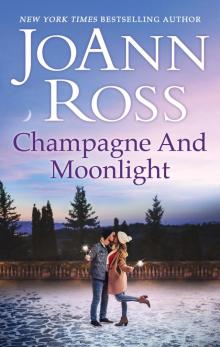 Champagne and Moonlight
Champagne and Moonlight No Regrets
No Regrets Long Road Home
Long Road Home Southern Comforts
Southern Comforts Herons Landing
Herons Landing Untamed
Untamed No Regrets (Mira Romance)
No Regrets (Mira Romance) Dark Desires
Dark Desires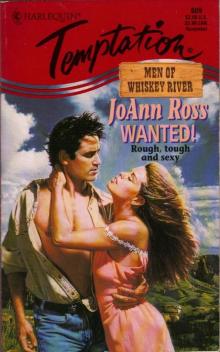 Wanted!
Wanted! River Road
River Road Midnight Runaway
Midnight Runaway The Long Way Back
The Long Way Back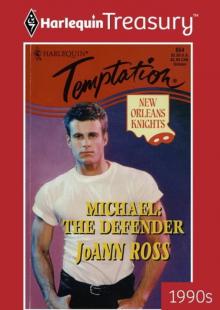 Michael: The Defender
Michael: The Defender Hot on the Trail
Hot on the Trail When I'm With You
When I'm With You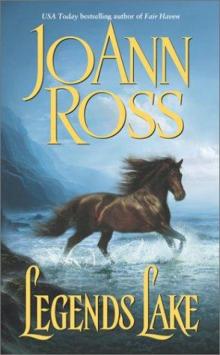 Legends Lake
Legends Lake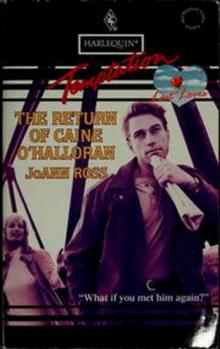 The Return of Caine O'Halloran
The Return of Caine O'Halloran Dance with a Dynasty
Dance with a Dynasty MacKenzie's Woman
MacKenzie's Woman Impulse
Impulse Sunset Point: A Shelter Bay Novel
Sunset Point: A Shelter Bay Novel You Again: A Shelter Bay novella (Shelter Bay series Book 8)
You Again: A Shelter Bay novella (Shelter Bay series Book 8)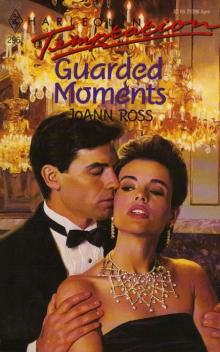 Guarded Moments
Guarded Moments No Safe Place
No Safe Place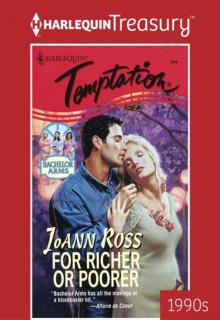 For Richer or Poorer
For Richer or Poorer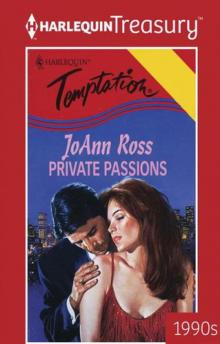 Private Passions
Private Passions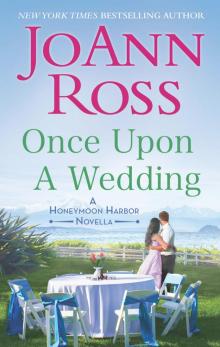 Once Upon a Wedding
Once Upon a Wedding Snowfall on Lighthouse Lane
Snowfall on Lighthouse Lane Christmas on Main Street
Christmas on Main Street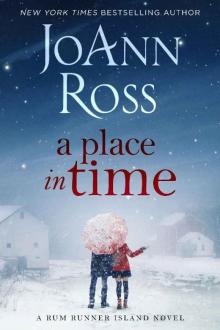 A Place in Time (Rum Runner Island Book 1)
A Place in Time (Rum Runner Island Book 1) Leaving Blue Bayou
Leaving Blue Bayou The Return of Caine O'Halloran: Hard Choices
The Return of Caine O'Halloran: Hard Choices Lucky in Love
Lucky in Love The Prince & The Showgirl
The Prince & The Showgirl Castaway Cove
Castaway Cove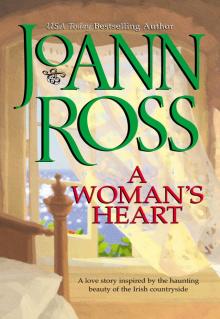 A Woman's Heart
A Woman's Heart One Summer
One Summer Ambushed
Ambushed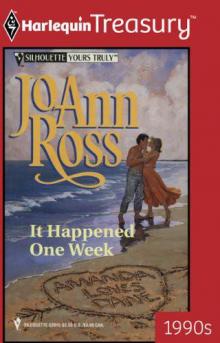 It Happened One Week
It Happened One Week Home by the Sea
Home by the Sea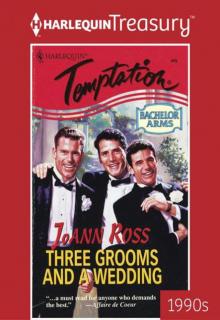 Three Grooms and a Wedding
Three Grooms and a Wedding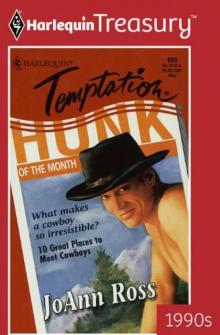 Hunk of the Month
Hunk of the Month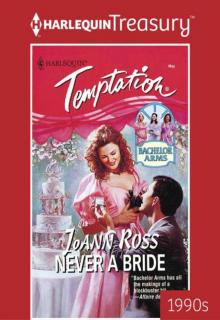 Never a Bride
Never a Bride Sun Kissed
Sun Kissed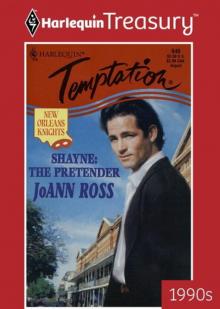 Shayne: The Pretender
Shayne: The Pretender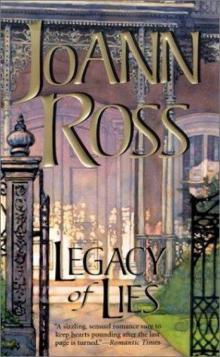 Legacy of Lies
Legacy of Lies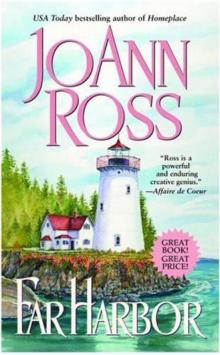 Far Harbor
Far Harbor Finn
Finn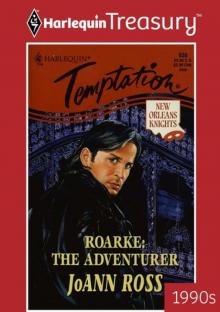 Roarke: The Adventurer
Roarke: The Adventurer I Do, I Do...For Now (Harlequin Love and Laugher)
I Do, I Do...For Now (Harlequin Love and Laugher) Briarwood Cottage
Briarwood Cottage On Lavender Lane
On Lavender Lane Sea Glass Winter
Sea Glass Winter River's Bend
River's Bend Christmas in Shelter Bay
Christmas in Shelter Bay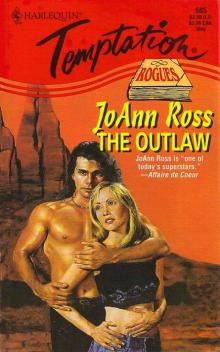 The Outlaw
The Outlaw Castaway Cove (2013)
Castaway Cove (2013) Confessions
Confessions Moonshell Beach: A Shelter Bay Novel
Moonshell Beach: A Shelter Bay Novel